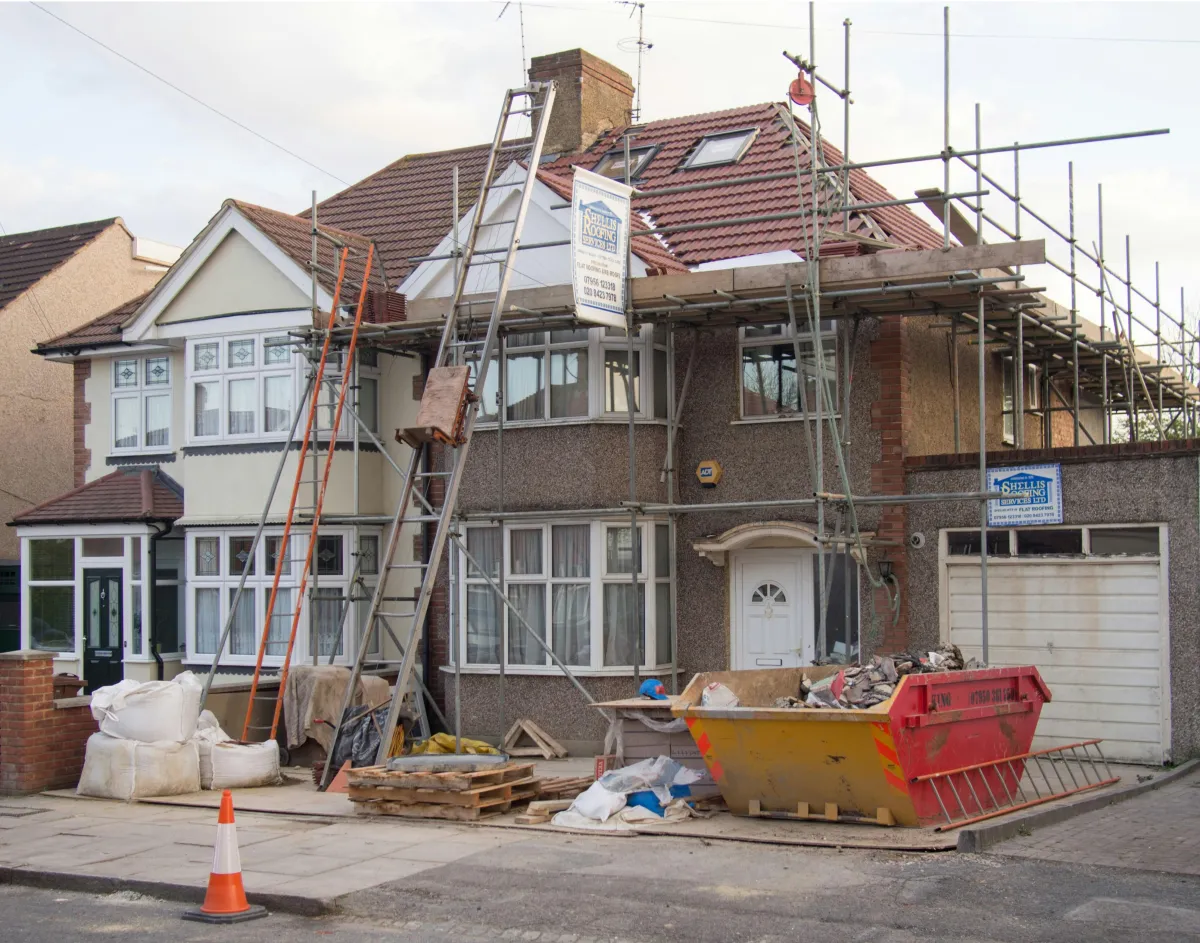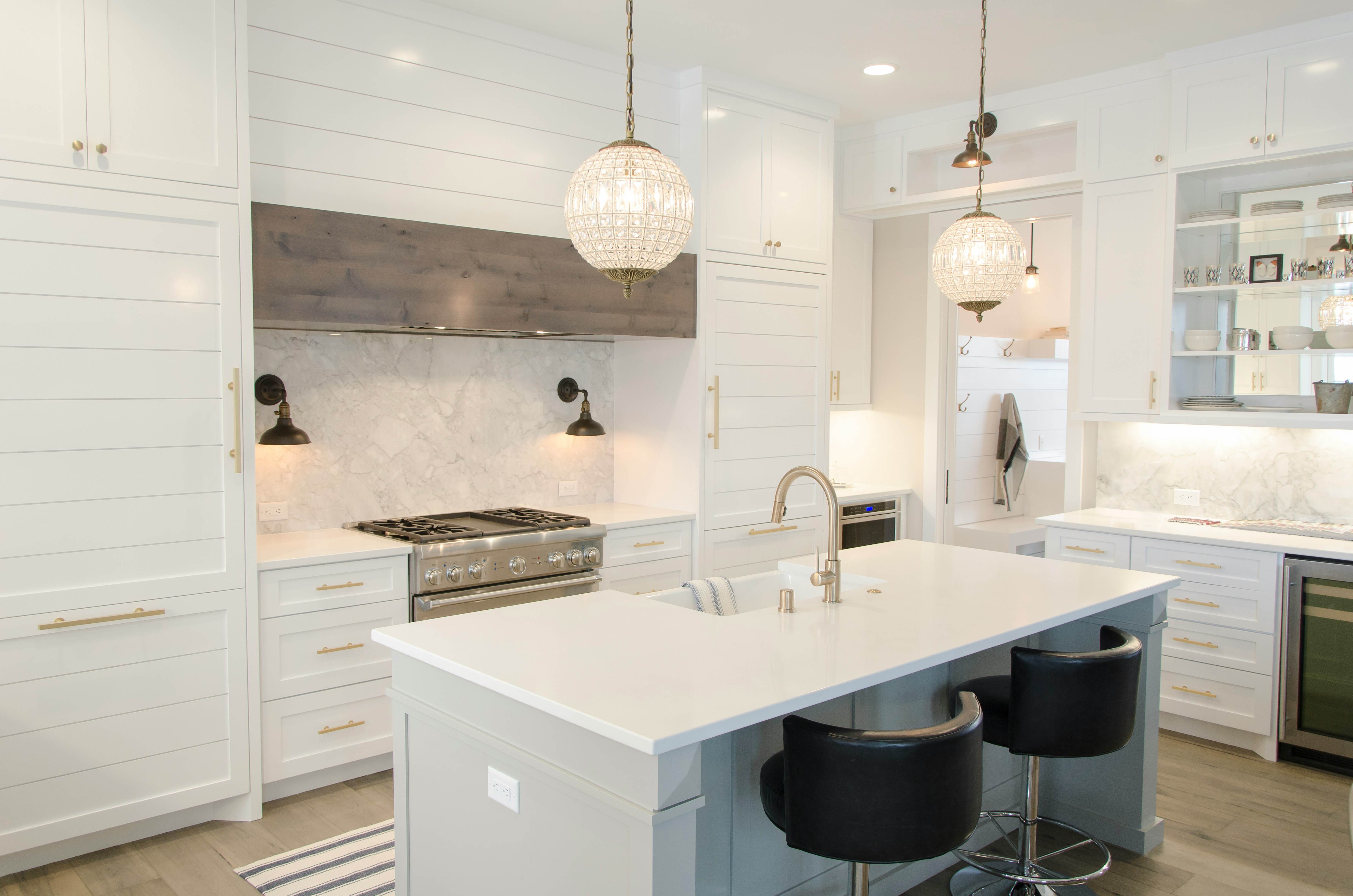
Key Factors When Comparing Local Custom Home Builders
When looking for the right custom home builder, many people feel overwhelmed by the choices available. Knowing where to start can be confusing. This blog post will highlight key factors to evaluate, such as understanding your specific needs, researching local builders, and assessing pricing structures. By following this guide, readers will gain the tools to make an informed decision, helping them find the perfect builder for their dream custom home. This content aims to alleviate the stress of the selection process, ensuring a smooth path to homeownership.
Key Takeaways
Understanding personal needs helps homebuyers narrow down custom builder options effectively
Evaluating warranty options offers peace of mind for long-term homeownership
Assessing builder portfolios showcases craftsmanship and design capabilities
Communication and responsiveness indicate a builder's commitment to customer satisfaction
Visiting construction sites allows homebuyers to evaluate quality and safety practices firsthand
Understand Your Specific Needs for a Custom Home

Homebuyers should identify their needs before comparing custom home builders, focusing on essential features like energy-efficient insulation options. Understanding these requirements assists in narrowing down choices with real estate agents. It's also important to consider warranty options, as a comprehensive warranty offers peace of mind by addressing future issues. Visual platforms like Houzz can inspire design preferences, enabling buyers to communicate their vision effectively to builders and fostering a successful custom home experience.
Identifying Essential Features for Your Custom Home
Before comparing custom home builders, it’s important for homebuyers to define their specific needs clearly. This includes deciding on key features, such as insulation options, which can significantly impact energy efficiency. Whether you prefer foam insulation or another option, understanding how these features will affect long-term utility costs and comfort is essential. Clarifying your priorities helps streamline the selection process when consulting with builders or real estate agents, ensuring that your needs are met within your budget.
Considering Long-Term Investments and Warranty Coverage
When investing in a custom home, considering long-term factors like warranty options is crucial. A comprehensive warranty provides peace of mind, covering potential future issues with the home’s construction or systems. Buyers should carefully review the warranty terms to ensure they are fully protected against costly repairs down the road. Knowing what is included in the warranty can help guide your choice of builder and ensure that any unforeseen issues are addressed promptly, safeguarding your investment for years to come.
Using Visual Inspiration to Clarify Your Design Preferences
Visual platforms can be incredibly helpful in defining your design preferences for a custom home. Browsing through various styles, layouts, and finishes can give homebuyers inspiration and a clearer idea of what they want in their new home. By gathering photos and examples of features you like, you can better communicate your vision to potential builders. This preparation allows for more productive discussions and ensures that the builder understands your expectations, leading to a smoother and more successful custom home experience.
Research Local Custom Home Builders

Evaluating local custom home builders involves several key factors. First, examining builder portfolios and past projects can illuminate their craftsmanship and design capabilities. Second, checking online reviews and ratings helps assess customer satisfaction and builder reputation. Lastly, assessing the builder’s experience in the area ensures familiarity with local construction standards and permits, making the process smoother and more efficient.
Evaluate Builder Portfolios and Past Projects
Evaluating builder portfolios and past projects is essential when comparing custom home builders, as this reveals their craftsmanship and design approaches. By focusing on specifics like the use of techniques such as a "blower door" test for energy efficiency, homebuyers can gain insight into the builders’ commitment to quality. Additionally, reviewing completed rooms in previously constructed properties can showcase whether a builder or architect aligns with the buyer's aesthetic preferences and functional needs, ultimately guiding customers toward the right choice for their dream home.
Check Online Reviews and Ratings
Checking online reviews and ratings is a key step for homebuyers looking to evaluate local custom home builders. Positive feedback about a builder's quality of work or their ability to manage renovations effectively can provide confidence in their services. Moreover, insights into how well a homebuilder communicates concerning contracts, including timeline and lighting choices, can help buyers gauge if they will have a smooth home-building experience.
Assess Builder’s Experience in Your Area
Assessing a builder's experience in your area is vital for homebuyers looking to construct a custom home. Local contractors know the specific utility regulations and energy standards in your region, which can significantly impact the effectiveness of installations, such as heat pumps, that affect long-term costs. By selecting a builder familiar with local practices and pricing, buyers can ensure a smoother process and ultimately save on utility bills while maximizing the home's energy efficiency.
Compare Pricing Structures and Payment Plans

Gathering detailed estimates from multiple builders is crucial for homebuyers looking to ensure they receive value for their investment. It's important to analyze what each estimate includes, as this can vary significantly and impact overall costs. Additionally, considering the financing options offered by builders can provide insights into maintaining a solid financial plan that aligns with home improvement goals while reflecting the builder's reputation and license status.
Gather Detailed Estimates From Multiple Builders
Building a custom home is a significant investment, so gathering detailed estimates from multiple builders is essential for homebuyers. A well-rounded estimate should break down costs, including materials, labor, and any additional features, allowing buyers to clearly understand what they are paying for. By comparing these estimates, homebuyers can identify which builders offer transparent pricing and ensure they align with their financial plans, ultimately guiding them to make informed decisions for their custom home project.
Analyze What’s Included in Each Estimate
When analyzing estimates from custom home builders, it is important to look closely at what each estimate includes. Buyers should examine whether costs cover materials, labor, permits, and additional features like landscaping or energy-efficient systems. Understanding the details in each estimate helps homebuyers identify hidden costs and choose a builder that offers transparent pricing, ensuring there are no surprises down the line:
Examine included materials and their quality
Check for labor costs and timelines
Look for additional features and upgrades
Review warranty options and terms
Assess any excluded items that may arise later
Consider Financing Options Offered by Builders
When evaluating custom home builders, understanding the financing options they provide can play a significant role in the decision-making process. Builders may offer various payment plans, including fixed-rate loans or flexible financing that aligns with a buyer's budget. By engaging with builders about these options, homebuyers can find solutions that not only streamline their financial planning but also enhance their overall home-building experience, ensuring they feel confident in their investment.
Explore Communication and Collaboration Styles

Assessing communication and collaboration styles is vital when comparing custom home builders. Evaluating how responsive builders are to inquiries can indicate their commitment to customer satisfaction. Additionally, looking into their project management processes will provide insight into how they handle timelines and logistics. Finally, understanding a builder's approach to client feedback can reveal their willingness to adapt and prioritize client needs throughout the building process.
Assess Responsiveness to Inquiries
Assessing responsiveness to inquiries is a crucial aspect when evaluating custom home builders. A builder's ability to promptly answer questions and provide information reflects their dedication to customer service. Homebuyers should expect clear communication regarding timelines, project statuses, and any concerns that may arise throughout the building process. This responsiveness not only fosters trust but also helps ensure a smooth collaboration between the homeowner and builder, ultimately leading to a successful custom home experience:
Expect prompt answers to questions.
Look for clear communication regarding timelines.
Evaluate how builders handle concerns and updates.
Trust is built through effective communication.
Smooth collaboration leads to successful custom home outcomes.
Evaluate Project Management Processes
Evaluating project management processes is crucial for homebuyers assessing custom home builders. A builder with a clear project management strategy can guarantee that each phase of construction proceeds smoothly and on schedule. For instance, builders who utilize project management software can effectively track timelines and budgets, providing homeowners with regular updates and transparency about the project's progress, which ultimately fosters trust and satisfaction throughout the home-building journey.
Understand the Builder’s Approach to Client Feedback
A builder's approach to client feedback is an essential factor in assessing their suitability for a custom home project. Builders who actively seek and implement client feedback demonstrate a commitment to meeting homeowner needs and preferences. For example, a builder that encourages regular check-ins and promptly addresses concerns can significantly enhance the collaborative experience throughout the construction process:
Builders should invite feedback at various project stages.
Open communication fosters a positive relationship and satisfaction.
Responsive builders adapt their strategies based on homeowner input.
Engaging clients boosts confidence in the project’s progress.
Investigate Warranty and Aftercare Services

Understanding warranty and aftercare services is essential for homebuyers comparing custom home builders. First, it’s important to clarify what is covered under the warranty, as this varies between builders. Next, assessing the builder’s track record for follow-up support can provide insight into their reliability. Lastly, determining the length and terms of the warranty helps ensure long-term protection and satisfaction.
Clarify What Is Covered Under Warranty
Understanding what is covered under warranty is crucial for homebuyers assessing custom home builders. Warranties can vary significantly between builders, so buyers should ask specific questions about what issues are included, such as structural integrity, plumbing, and electrical systems. Knowing these details upfront helps ensure that any future concerns are addressed adequately and provides peace of mind throughout the building process:
Ask about coverage for structural elements.
Inquire about warranties for electrical and plumbing systems.
Understand the length and terms of the warranty.
Review the builder’s history for follow-up support.
Assess the Builder’s Track Record for Follow-Up Support
Evaluating a builder's track record for follow-up support is essential for homebuyers seeking a reliable custom home builder. A reputable builder will have systems in place to check in with clients after the project is completed and address any issues that may arise. By reviewing testimonials or case studies, potential buyers can gauge how well builders respond to their client's needs post-construction, ensuring their investment is protected long-term.
Determine the Length and Terms of the Warranty
Understanding the length and terms of the warranty is vital for homebuyers considering custom home builders. This warranty serves as a safety net that covers various aspects of the home, such as structural integrity and systems like plumbing and electrical work. Buyers should inquire about how long the warranty lasts and what specific repairs or replacements it includes, ensuring that they are fully aware of any responsibilities and protections in place before making a decision.
Visit Ongoing or Completed Construction Sites

Visiting ongoing or completed construction sites allows homebuyers to evaluate several essential factors of custom builders. Observing work quality and safety practices provides insight into the builders' commitment to craftsmanship. Engaging with current homeowners about their experiences can reveal valuable information on satisfaction and reliability. Additionally, assessing the timeliness and organization of a project offers a glimpse into how efficiently the builder manages construction timelines and resources.
Observe Work Quality and Safety Practices
When visiting ongoing or completed construction sites, homebuyers can get a firsthand look at the work quality and safety practices of custom builders. Observing whether workers follow safety protocols and use quality materials can reveal how much the builder prioritizes craftsmanship and compliance with local regulations. This evaluation helps homebuyers ensure they're choosing a builder committed to delivering a durable and safe home:
Look for proper safety equipment being used by workers.
Observe the condition and organization of the worksite.
Check if high-quality materials are being utilized.
Engage with workers for insights into their processes.
Assess whether the builder is accessible for questions.
Talk to Current Homeowners About Their Experience
Speaking with current homeowners can provide valuable insights into their experiences with local custom home builders. They can share details about the builder's communication, adherence to timelines, and post-construction support. This firsthand feedback is beneficial for potential buyers, as it helps them gauge overall satisfaction and highlights any potential concerns with the builder’s work quality or customer service:
Assess Timeliness and Organization of the Project
Assessing the timeliness and organization of a project is vital for homebuyers evaluating custom builders. Observing how well a construction site operates can reveal whether the builder sticks to schedules and maintains an organized work environment. A builder who showcases efficient project management, from timely deliveries to effective team coordination, can significantly reduce stress for homeowners and ensure their dream home is completed as planned.
Conclusion
Evaluating key factors when comparing custom home builders in your local area is essential for ensuring a successful home-building journey. Homebuyers should focus on assessing builder portfolios, customer feedback, and warranty options to make informed decisions. Understanding financing options and project management processes can further enhance the homebuying experience. Armed with this knowledge, potential homeowners can confidently choose the right builder to fulfill their dream of a custom home.


